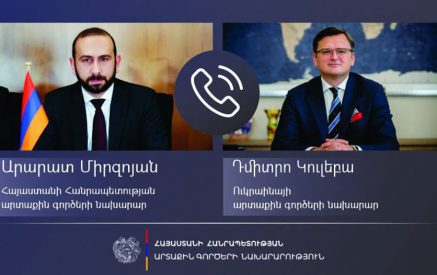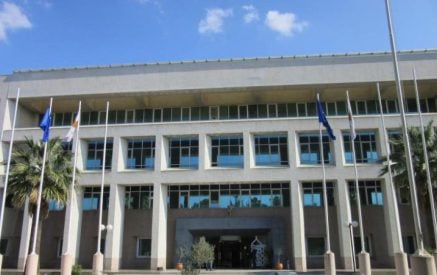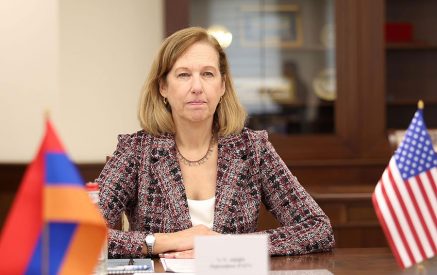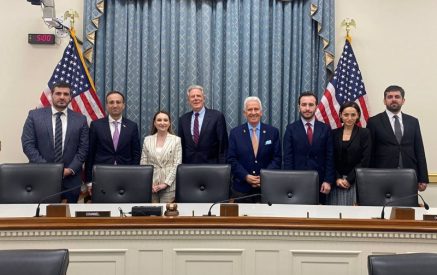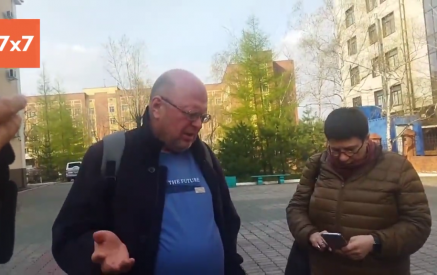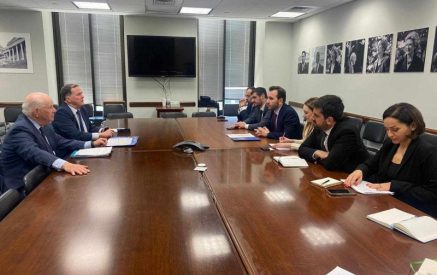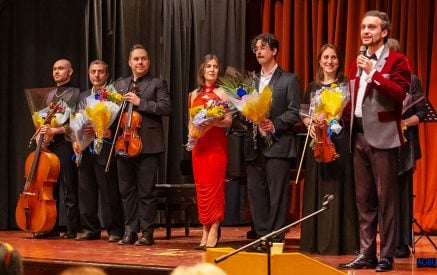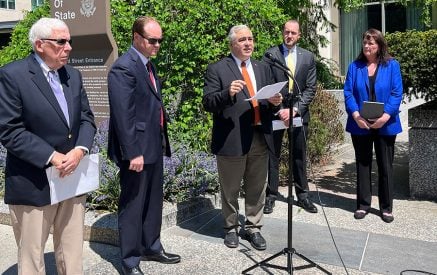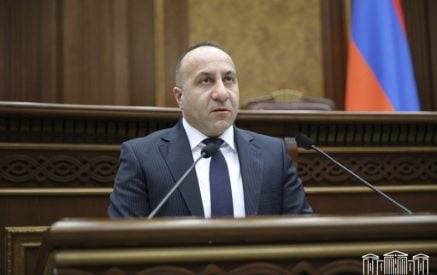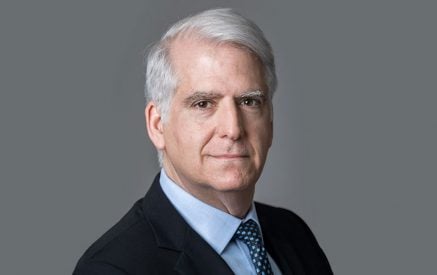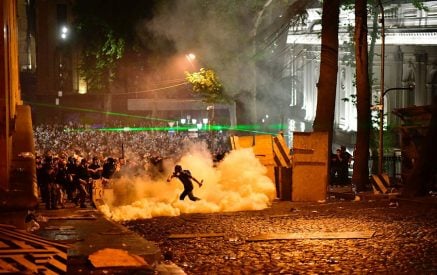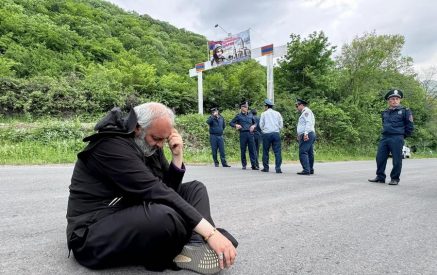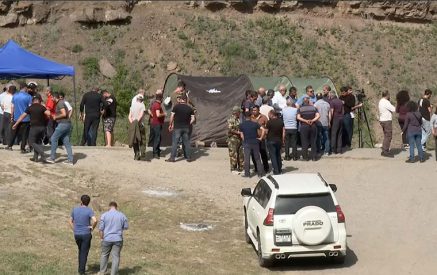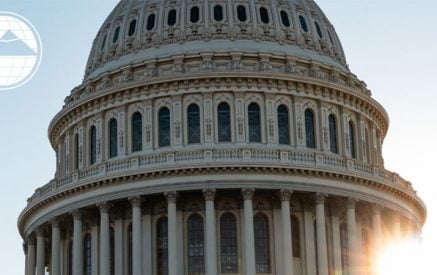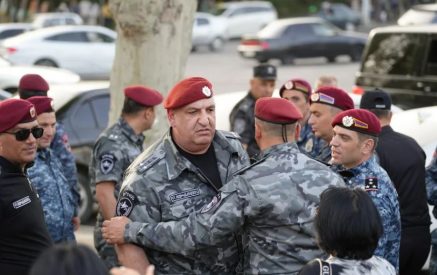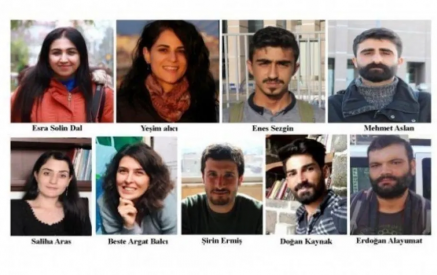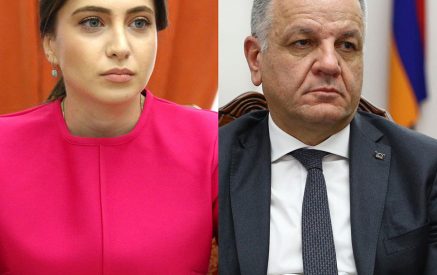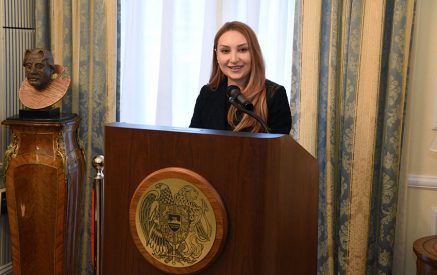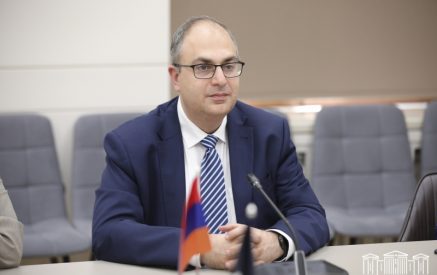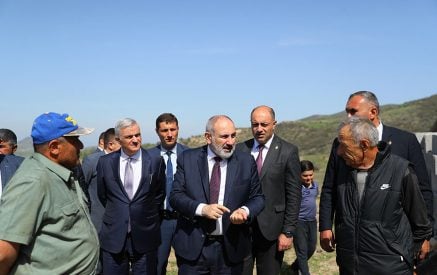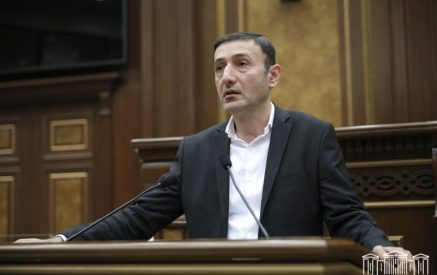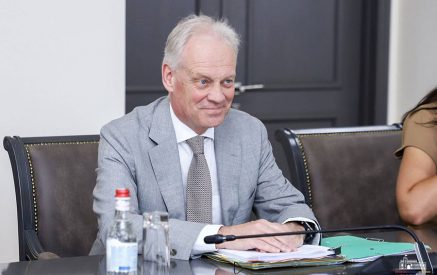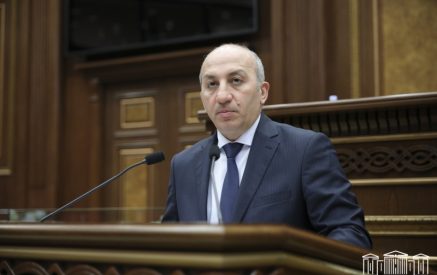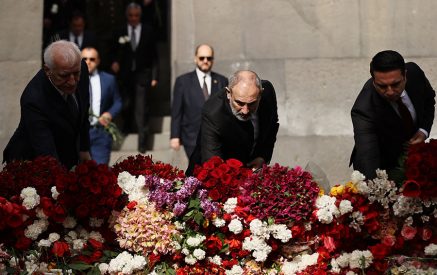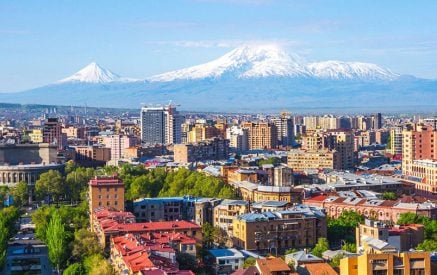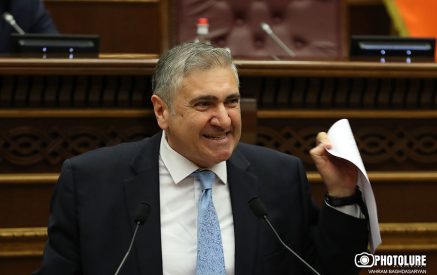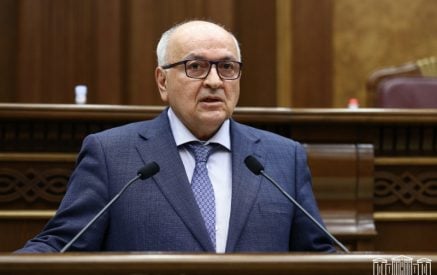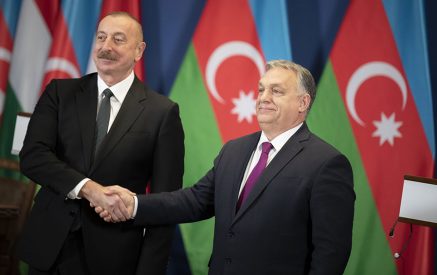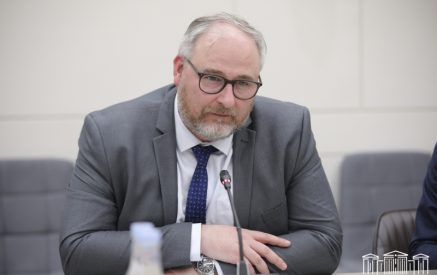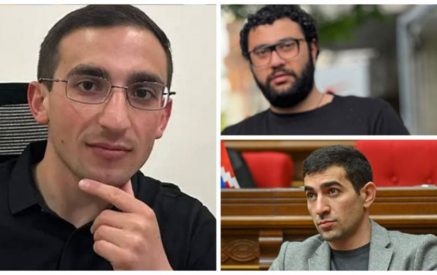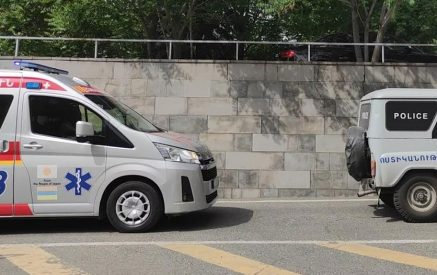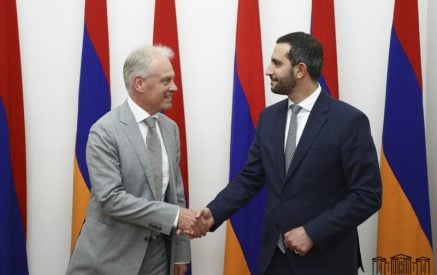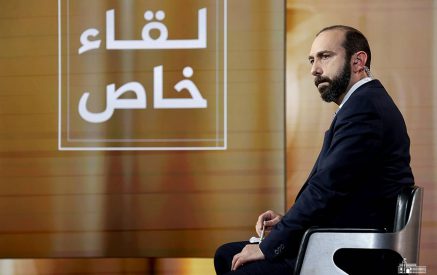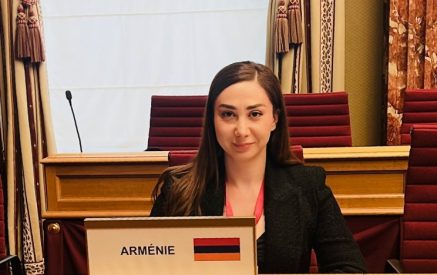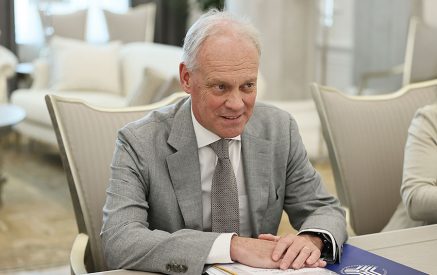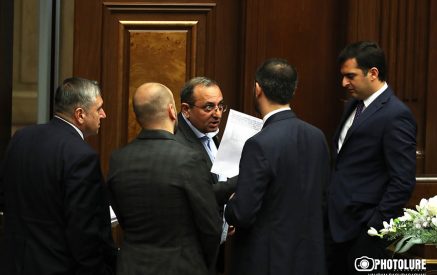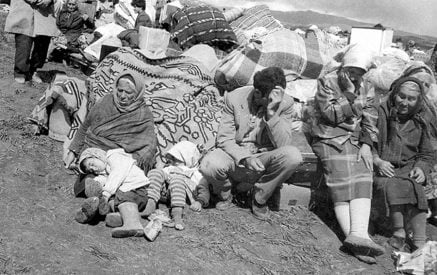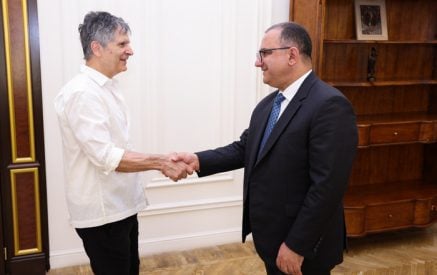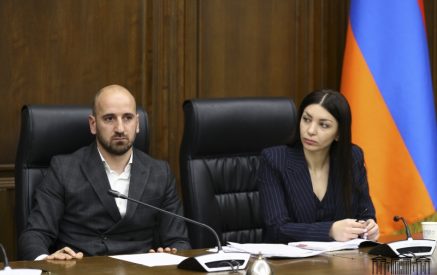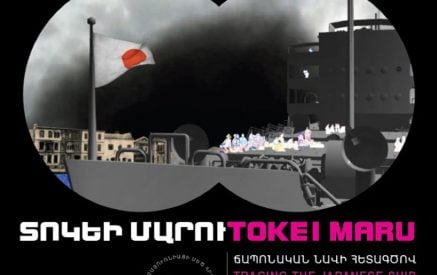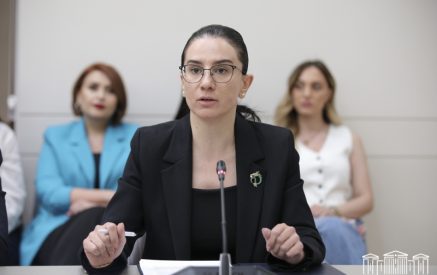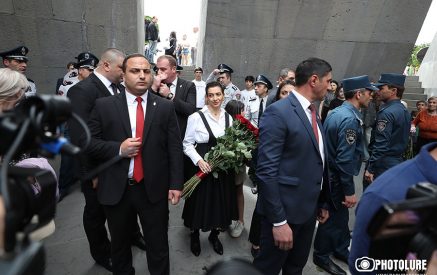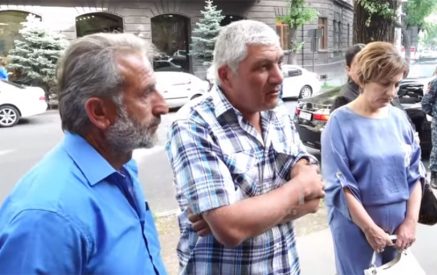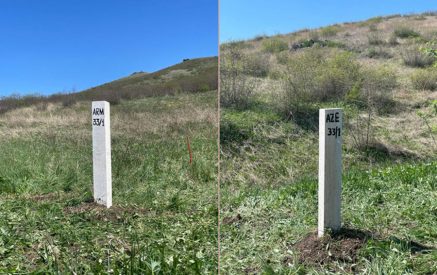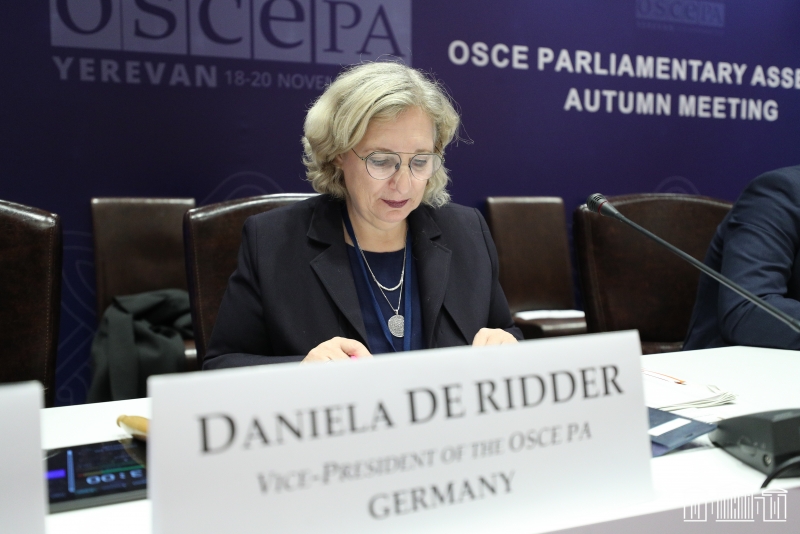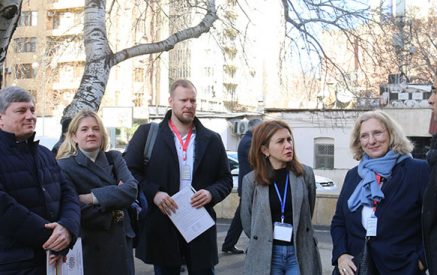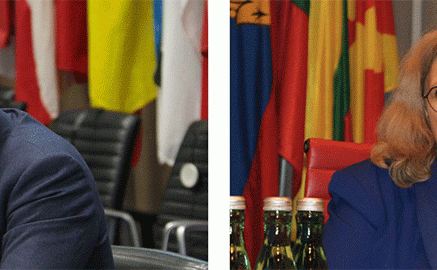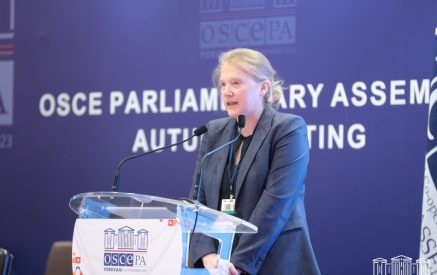OSCE PA Autumn Meeting in Yerevan features debates on the Middle East, Ukraine, South Caucasus, corruption and protecting minorities
The OSCE Parliamentary Assembly’s 21st Autumn Meeting concluded today with a Mediterranean Forum focused on the situation in the Middle East, wrapping up three days of debate in Yerevan that covered issues including the Russian Federation’s war against Ukraine and security in the South Caucasus.
Following the first session of the Parliamentary Conference on Saturday, held under the theme “Addressing security: the OSCE’s role in an era of conflict,” Sunday’s Parliamentary Conference sessions included debates on fighting corruption and protecting minorities.
Chaired by OSCE PA Vice-President and Special Representative on Fighting Corruption Irene Charalambides (Cyprus), Session Two was held under the theme “Corruption as a fundamental threat to peace and security,” featuring presentations by Alexandra Habershon, Programme Manager at the World Bank, Mariam Galstyan, a member of the Corruption Prevention Commission of Armenia, and Konstantine Vardzelashvili from the OSCE Office for Democratic Institutions and Human Rights.
Habershon described corruption as a driver of conflict and discussed the World Bank’s efforts in promoting good governance. A whole-of-government approach specific to individual countries is needed, she said, which must include strategies against money laundering and tax crime. In this regard, Galstyan discussed the Armenian national strategy against corruption, and Vardzelashvili noted that ODIHR gives advice to OSCE participating States with a focus on practical, specific and comprehensive advice.
In the debate, lawmakers highlighted their national efforts, noting that the fight against corruption requires legislative changes as well as an overhaul of the relationship between government and citizens. Special Representative Charalambides said that journalists and civil society need to be our eyes and ears and that prosecution is essential.
Session Three, chaired by OSCE PA Vice-President Daniela De Ridder, was held under the theme “Respect for all: protecting minorities and people affected by conflict,” and was addressed by Fernand De Varennes, former UN Special Rapporteur on Minority Issues, and Yeghisheh Kirakosyan, Representative of Armenia on International Legal Issues. Dr. De Ridder opened the session by pointing to the humanitarian consequences of the military operation last September in the Karabakh region of Azerbaijan which caused more than 100,000 persons to flee to Armenia in less than a week.
Read also
Noting that the world is now experiencing more violent conflicts than at any time since 1945, Dr. De Varennes pointed out that many of these involve grievances by minorities. In order to prevent conflict, he said, it is essential to protect minority rights, and attention must also be paid to the more than 110 million people worldwide who are displaced. Kirakosyan noted that in Armenia racial discrimination is prohibited and that the country utilizes all international fora to pursue peaceful settlement of disputes.
In the debate, parliamentarians raised issues including the need to adopt legislation for the integration of child refugees, and ensure that a sense of stability is provided for all vulnerable groups. International organizations must strengthen the response to the wars taking place and provide support to those suffering their effects, it was stressed.
Side Meetings
The Ad Hoc Committee on Migration and Ad Hoc Committee on Countering Terrorism (CCT), as well as the Network of Young Parliamentarians, met on Sunday to review implemented activities and discuss ongoing work.
OSCE PA President Pia Kauma (Finland) briefed the migration committee on her recent visit to a refugee shelter in Armenia, describing the stories she heard from many people who had to flee their homes due to the military operation in Azerbaijan in September. Armenia has done an admirable job providing comfortable living conditions but the hardships that the people have endured are considerable, she said.
At the meeting of the CCT, chaired by OSCE PA Vice-President Reinhold Lopatka, members discussed recent events that the CCT has participated in. Lopatka also briefed the CCT members on his recent visit to Israel where he met with people directly affected by Hamas’s terrorist attack on 7 October.
Mediterranean Forum
Monday’s Mediterranean Forum was opened by French Senator Pascal Allizard, OSCE PA Special Representative on Mediterranean Affairs, and included remarks by President Kauma and Chair of the OSCE Mediterranean Partners for Co-operation Group Häkkinen.
Special Representative Allizard argued that the Israel-Palestine conflict must be resolved on the basis of mutual security. “The only viable solution is a two-state solution,” Allizard said, “which requires the vital processes for peace and security that are laid out in the OSCE Helsinki Final Act and the United Nations Charter.”
Ambassador Häkkinen pointed out that the Mediterranean region is facing several cross-dimensional challenges, including the war sparked by Hamas’s terrorist attack on 7 October. The OSCE offers valuable tools, he said, noting that the OSCE Mediterranean partnership is an excellent platform for countering security threats.
The Mediterranean Forum also included addresses by parliamentary delegations from OSCE Mediterranean Partners for Co-operation.
In a video address, Speaker of the Knesset Amir Ohana described the atrocities of 7 October, noting that victims suffered torture and extreme violence. After these horrors, he said, Israel determined that it must act. “Israel has the obligation to ensure the safety and security of its citizens,” he said.
Fatima El Hassani, a member of Morocco’s Delegation, stressed that armed conflicts must provide full protection of civilians, a point that was reiterated in the general debate. The prolonged conflict in the Middle East is an obstacle to development and reaching other international goals, such as addressing climate change, parliamentarians said. There were also calls for the immediate release of all hostages being held by Hamas.
In her concluding remarks at the Mediterranean Forum, OSCE PA President Pia Kauma noted that Israel has the right to self-defense and its military operation must focus on disarming terrorist groups in full accordance with international humanitarian law. “We are all deeply concerned about the dire humanitarian situation in Gaza and its devastating effect on women and children in particular,” Kauma said. “It is our collective responsibility to protect human life and human dignity. Humanitarian pauses must allow assistance to reach those in need.”
OSCE PA Secretary General Roberto Montella welcomed the outcomes of the Yerevan meeting. “I am very proud of the work that the OSCE parliamentarians representing one billion citizens have carried out here these past three days on all the major security challenges of our day,” he said. “This shows that this Assembly is in tune with the realities that we’re facing. I hope that the OSCE ministers, when they gather for the upcoming Ministerial Council in Skopje, will exercise equal political leadership and vision to ensure that the organization remains functional and effective.”
For more information on the Autumn Meeting, including videos of the past three days of debate, please click here.

